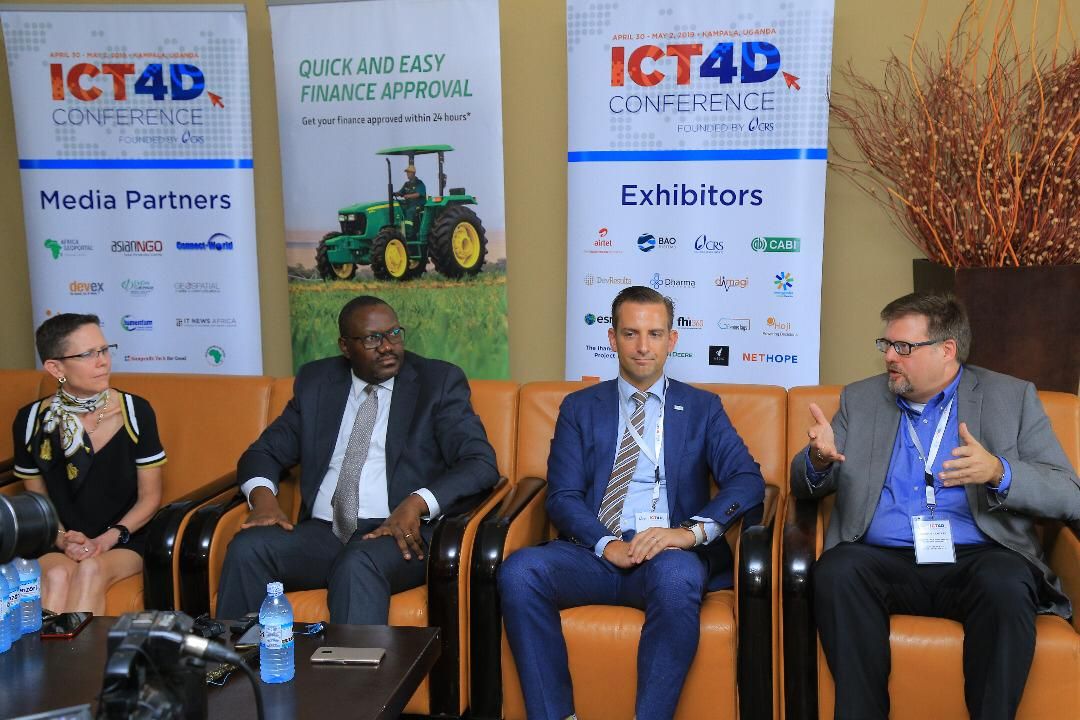Kampala is hosting the 11th annual ICT4D conference, running from April 30th to May 3rd, and the first day has converged over 900 attendees from close to 90 countries and over 400 organizations. The conference is an assembly that connects public, private and the civil society to exchange digital innovations for humanitarian and development. This year’s event is co-hosted by the Ministry of ICT and National Guidance of Uganda.
Day 1 marked the opening of the conference, which was done by Honorable Vincent Bagiire – the Permanent Secretary of the ICT Ministry, who emphasized the need to embrace nationwide digitization within Uganda. He opened up the plenary session in which a number of speakers reviewed the relevance of technology and digitization in artificial intelligence, agriculture, finances, and more.
Since 2010, ICT4D conferences have been organized by the Catholic Relief Service (CRS) as the Lead Organizing Partner. CRS created the Conference to help organizations use ICT to become more effective and expand their reach, and has put together a team that now organizes the conference every year.
Jennifer Poidatz, the Vice President at CRS echoed the need to have the technological capability at each’s fingertips, during the day’s first presentation. She asked stakeholders to make technology easier and more accessible to use so that it can amplify the voice of the voiceless. She as well listed connectivity and data analytics as the top trends that will impact aid/developmental sector in the next 5 years,
“We have to get technology into the hands of local partners and program participants. We must equip the grass roots of preparedness, recovery and development. By putting tech in the hands of our partners and community members, we are giving them the tools to make their own decisions and restart their lives and livelihoods.”
Lauren Woodman, the CEO of NetHope, while delivering a plenary on ‘People, Processes and Technology and how to leverage these resources to do our jobs better’ differentiated between going digital and being digitized. She noted that going digital is not having a Facebook or Twitter account, but rather entails redefining an organization. Adding that ‘Digitizing is instilling a discipline while digital is about empowering people to make decisions that they need to.’

Last year’s ICT4D conference was held in Lusaka, Zambia bringing together over 600 attendees from various fields of work representing 80 different countries with over 200 speakers throughout the week. Whereas the 2019 event is a first for Kampala, previous editions have been held in Nairobi, Kenya.
Additionally, the team has created a webinar series to share the best lessons with people around the world. In this, CRS extensively teaches how practitioners and providers are using ICT to build the resilience of communities across Africa, Latin America, and Asia.

